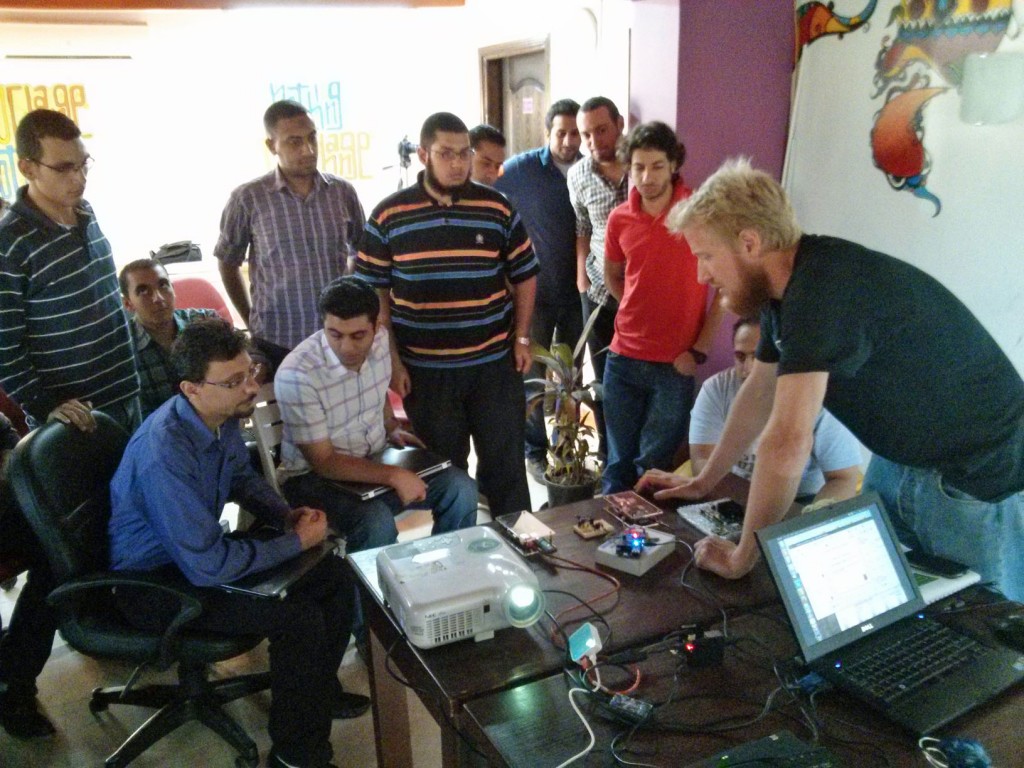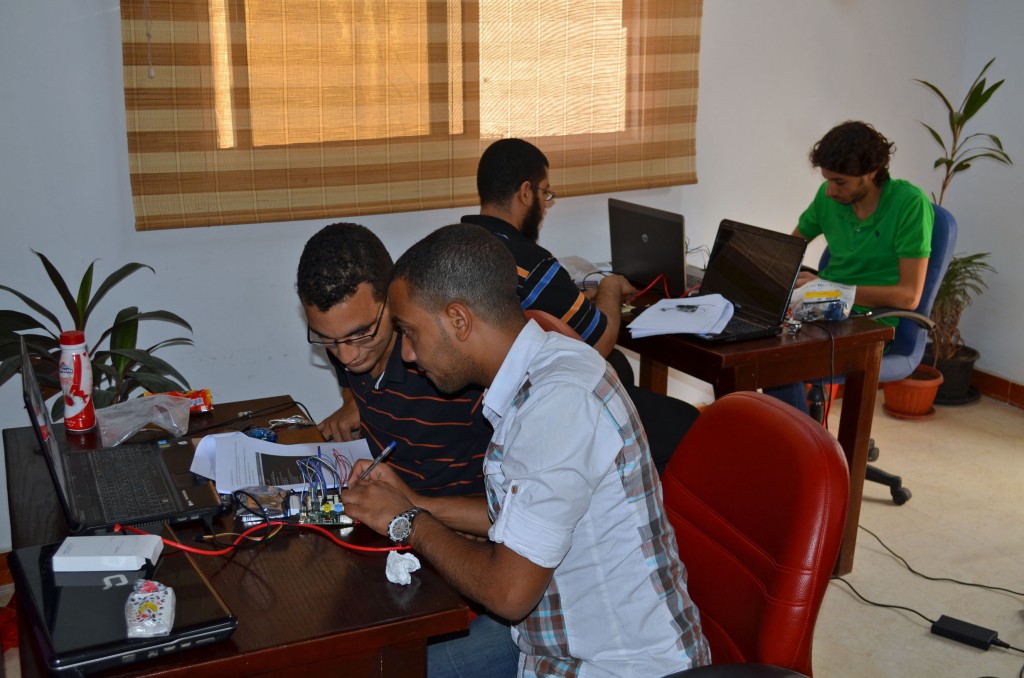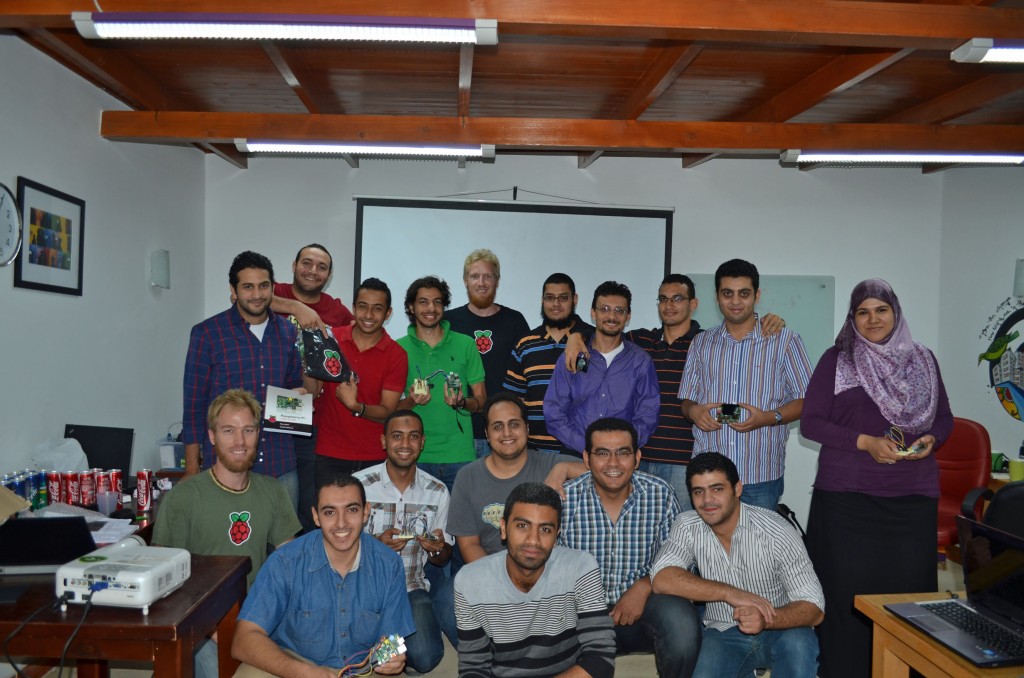|
Harpercollins has just reported their latest quarterly results, which are the first ones produced since News Corp spun off their publishing division. Total eBook sales rose 30% in the quarter and accounted for 22% of revenue in the most recent period compared to 15% in the first quarter of fiscal 2013. The big titles contributing to HC’s success was The Ocean at the End of the Lane by Neil Gaiman, The English Girl by Daniel Silva, and Divergent and Insurgent by Veronica Roth. Overall at the company, their entire book division has seen a sharp decline. Their big bet is with new projects, such as selling eBooks directly to customers and launching their own dedicated e-Reader app for Android. eBooks Account for 22% of Revenue at HarperCollins is a post from: E-Reader News |
A Semi-automated Technology Roundup Provided by Linebaugh Public Library IT Staff | techblog.linebaugh.org
Monday, November 11, 2013
eBooks Account for 22% of Revenue at HarperCollins
Stack Ranking: The Politics of Trying to Get Promoted with some of the Worlds Largest Tech Companies
|
If you have dreams about working for Apple, Microsoft, Amazon or Yahoo, there are many barriers in place to prevent employees from moving up in the organization. Microsoft pioneered a concept called stack ranking, which lumps employees and managers into three distinct categories. These are the superstars, people you want to hang on to, or people that need to shape up, or ship out. Amazon, Yahoo and a myriad of other companies are starting to adapt this mentality into their internal systems. Kurt Eichenwald commented that “Every current and former Microsoft employee I interviewed—every one—cited stack ranking as the most destructive process inside of Microsoft, something that drove out untold numbers of employees. The system—also referred to as "the performance model," "the bell curve," or just "the employee review"—has, with certain variations over the years, worked like this: every unit was forced to declare a certain percentage of employees as top performers, then good performers, then average, then below average, then poor. For that reason, executives said, a lot of Microsoft superstars did everything they could to avoid working alongside other top-notch developers, out of fear that they would be hurt in the rankings. And the reviews had real-world consequences: those at the top received bonuses and promotions; those at the bottom usually received no cash or were shown the door. Kurt went to directly quote an engineer who said "The behavior this engenders, people do everything they can to stay out of the bottom bucket. People responsible for features will openly sabotage other people's efforts. One of the most valuable things I learned was to give the appearance of being courteous while withholding just enough information from colleagues to ensure they didn’t get ahead of me on the rankings." Worse, because the reviews came every six months, employees and their supervisors—who were also ranked—focused on their short-term performance, rather than on longer efforts to innovate. Many industry experts have claimed that this promotional system is toxic, creates an air of distrust and many people have said that this method has contributed to the companies overall decline in the last ten years. This has not stopped other companies from trying to emulate it. Dreams about working at Facebook? Molly Graham who used to work in Facebook HR said “Then there is a two week period of calibration where managers meet to look at the assessments of everyone on their team and ensure that people are rated correctly relative to their peers. Facebook has seven performance assessments as well as a guideline for what % of employees should be at each level, however it is explicitly not a forced curve, particularly for small teams. The curve exists to ensure that extraordinary performance is rewarded (I believe the distribution is such that only 2% or less of employees are given the highest rating every cycle) and that if hard conversations need to happen, they happen.” Molly went on to say that “Calibration happens at the team level and at the senior management level , and all of their direct reports look at the numbers for the whole company, lists of the highest performers and lists of the lowest performers. Performance Assessments are final and they are used to determine compensation like raises, bonuses, and additional equity grants. Facebook gives out raises and additional equity once a year but they do promotions and bonuses twice a year. Compensation at Facebook is almost entirely formulaic with multipliers (based on the Performance Assessment) for bonuses, raises, and additional equity grants. Brad Stone recently released a new book about Amazon and the research he did gave him unparalleled access to hundreds of employees. In his book, he mentioned “In a meeting held usually in September or October, the leaders talk about who’s getting a promotion, and talk about who is doing well and who is doing poorly. Amazon’s managers group employees into three tiers: The top 20%, who are groomed for promotions, the next 70% who are kept happy, and the bottom 10%, who are either let go, or told to get it together. This system, which was created by Jeff Bezos, is supposed to cut down on politics and in-fighting. Unfortunately, Stone says it has the opposite effect.”Ambitious employees tend to spend months having lunch and coffee with their boss's peers to ensure a positive outcome once the topic of their proposed promotion is raised in [the meetings],” says Stone. Stone also notes that promotions are very limited at Amazon, so if you fight for your employee to get a promotion, it means someone else’s employee gets snubbed. And anyone in the room can nuke someone else’s promotion. Most of the companies outlined above all have curves for employee promotions and knowing who the dead-weight is. It is very difficult to excel and thrive at these companies because there are so many different factors holding you back. These companies may be stable, but they don’t employ the best methodologies to rise up in the ranks. One company that buckles the trend of stack ranking is Google. A former employee at the big G, said it is all about peer based reviews. “Promotion and work performances is entirely reliant on peer reviews. In other words, to get ahead at Google and to get a positive performance review, you must get positive reviews from your fellow co-workers. Your manager might love you, but if your co-workers don’t like you, you have some work to do. Managers are also required to seek peer review from those they manage. Senior level employees from other fields are also encouraged to seek peer reviews from people in other departments. For example, engineers need reviews from people other than engineers in order to advance. For this reason, a culture of cooperation is endemic at Google. This is great because the percentage of “cowboys” that seems common at other high tech companies is quite low at Google. It also fosters an awareness of the type of contribution made by people outside your department, since everyone reviews people in other fields, and therefore must learn a bit about what others do outside their sphere.” In the end, it looks like Amazon and Facebook have fairly similar performance review structures as Microsoft much-lambasted system while Google seems to have a performance that seems to trade one set of problems for a different set. The Stack system for promotions is not working and Amazon is ranked second in the US for having the least loyal employees. Worker bees at Microsoft only have a shelf life of four years at the company before they get disillusioned and move on. Stack Ranking: The Politics of Trying to Get Promoted with some of the Worlds Largest Tech Companies is a post from: E-Reader News |
Good e-Reader Radio – Amazon Source, New e-Readers and Kno
|
Welcome back to another edition of the Good e-Reader Radio Show! Today Jeremy Greenfield and Michael Kozlowski discuss all of the latest news in Digital Publishing, e-Readers and all of the latest news. Amazon Source has garnered the majority of the headlines in recent weeks with the Seattle based company hooking up Indie Bookstores with the ability to earn commissions selling e-Readers and eBoos. There is massive resistance to the idea of giving up their local customers to Amazon and having them buy into the digital ecosystem. Also, Amazon and US Postal service will begin making Sunday deliveries in key cities. Intel, who has a loyal investor of educational textbook and software company Kno, now owns it. We give you an indication on where Kno came from and what this means to the future of educational tech in the classroom. Good e-Reader Radio – Amazon Source, New e-Readers and Kno is a post from: E-Reader News |
URL: http://goodereader.com/blog/e-reader-radio/good-e-reader-radio-amazon-source-new-e-readers-and-kno?utm_source=rss&utm_medium=rss&utm_campaign=good-e-reader-radio-amazon-source-new-e-readers-and-kno
Enclosure: http://goodereader.com/blog/podpress_trac/feed/67469/0/goodereader-radio-nov11-2013.mp3
Screen Comparison: E Ink Carta vs E Ink Pearl
| Ever since I got the Kindle Paperwhite 2 I’ve been a bit skeptical about the so-called new and improved E Ink Carta screen technology. Right now the Paperwhite 2 is the only device using Carta screens; most other ebook readers use Pearl screens. Both are the same type of epaper screen tech produced by the […] |
URL: http://feeds.the-ebook-reader.com/~r/feedburner/cmWU/~3/GoM--898pyw/
OverDrive at Elementary: Getting the word out to parents and students
|
In September, we participated in OverDrive's "Big Library Read." I host book clubs every month for different grade levels, so the students at my school are very familiar with the concept of book clubs. I decided to try and get as many students involved in the "Big Library Read" as I could by hosting an online book club, as opposed to the traditional book club. I created three posts on our library website to explain to students how the online book club would work. I had three separate posts over the course of three weeks so the students could go online and comment about the book we were all reading together. We had a lot of students check out the book, (the most in our district) but the commenting online didn't go over so well. Live and learn. Next time I will try and have a morning book club for the students who are reading at home and allow them to use library computers to get on and comment about the book! To see the blog posts, click here, here and here.
See my post on Vine:
During the month of October, I also had the opportunity to have a Samsung Galaxy in the library that our district won from OverDrive for our promotional efforts. To allow different schools to get to explore this great device, our lead OverDrive librarian decided to call him "Flat Samsung" and allow him to travel from school to school each month. For my month, I gave him laminated arms and legs and a face on the screen. I kept him out for kids to explore by a QR Code that would take the kids to our digital library site. I took him to one of our morning assemblies and talked about him being our special OverDrive visitor to get kids to inquire about him and our eBook collection. See my post on Vine:
I love trying to find the right times to engage parents with OverDrive and different ways to excite kids about reading eBooks. Next on my agenda is using Skype to connect some of our elementary kids with some middle school and high school kids for some OverDrive tutorials!
Blog Post by Nancy Jo Lambert, MLS Ruth Borchardt Elementary School Frisco ISD http://www.rbelibrary.com @lambertn lambertn@friscoisd.org |
URL: http://feedproxy.google.com/~r/OverdrivesDigitalLibraryBlog/~3/Gy3WeZUhpak/
Kindle Paperwhite 2 vs Paperwhite 1 Comparison
| After doing the video review for the Kindle Paperwhite 2, I decided to put together a quick comparison review showing the differences between the original Paperwhite and the new Paperwhite. Both are almost identical down to the last detail, but there are some differences, most notably the frontlight and the screen. As mentioned in the […] |
URL: http://feeds.the-ebook-reader.com/~r/feedburner/cmWU/~3/Ax5v3qLDXfU/
Wattpad Helps Veteran Give Voice to Combat Story
|
As many veterans have discovered, the brutality of serving in wartime is only half of the ordeal of service; coming home and readjusting to life as a stateside service member or civilian requires a whole other level of focus and commitment, but it is a stage of military service that far too many veterans are unprepared for. For Bob Tanner (www.wattpad.com/user/BobTanner), a Marine and member of the Delta Company Outlaws who faced depression and PTSD upon completing his service in the Middle East, writing his story proved therapeutic, but putting his story in front of an audience of 20 million Wattpad users gave him the support and understanding that readers could offer. Tanner’s book, Memoirs of an Outlaw: Life in the Sandbox, was written on the platform and is now available through CreateSpace. In it, the author details what his military experience was like, as well as the issues that can plague many returning soldiers. Good e-Reader interviewed Tanner about both his book and about putting it in front of others through first a Tumblr blog and then an open platform like Wattpad. “I started searching around and found Wattpad,” Tanner explained of the process of writing the book in front of an audience of readers. “As I finished each chapter, I posted it. I started getting feedback from the Wattpad reader community and some of the people who provided feedback seemed to be more experienced in writing, so they would help me out with grammar corrections or advice on how to build a character, add descriptions, and to fine tune my writing. I still had to hire an editor, but they were great.” Tanner started investigating the publishing process while his book was still in progress on Wattpad. With so many other life commitments, he didn’t feel the search for a literary agent and publishing contract was right for him; he investigated self-publishing as the book was never intended to be a bestseller, but rather as a memoir for him and his fellow servicemen, and as a legacy story to leave their children. “It was great to get that feedback, but emotionally it helped as well to know that other people were reading that story and commenting that it was a great read, thanking me for my service, and all that other great stuff. It helped in many different ways, not just for writing, but emotionally, as well.” At the time of the interview, Tanner’s title had nearly 33,000 separate reads on Wattpad, with seventy user comments and almost five hundred votes. Memoirs of an Outlaw is free today on Kindle, and available in paperback.
Wattpad Helps Veteran Give Voice to Combat Story is a post from: E-Reader News |
How to Access Hidden Web Browser on Nook GlowLight (Video)
| The Nook GlowLight from Barnes and Noble offers a good reading experience for ebooks with its high resolution, evenly frontlit screen, but it lacks a lot of advanced features found on competing brands of ebook readers. Kindle and Kobo ereaders, for instance, have web browsers for light web reading and for downloading ebooks from various […] |
URL: http://feeds.the-ebook-reader.com/~r/feedburner/cmWU/~3/8zZS_tq74ZY/
The Lotter brothers reach Cairo, first ARM/Raspberry Pi workshop in Africa a success!
| The Lotter brothers have reached Cairo on their epic overland trip to South Africa. (N.B. That’s ‘epic’ as in Odyssean, not as in finishing a really hard boss level or the pizza shop forgetting to charge you for the stuffed crust option.) Fred and Ernest tell their story so far: In July this year my brother and I departed from England in a Land Rover Defender. Our mission was to drive back to our home country, South Africa. We selected a route which will take us through Europe, Russia, some Middle Eastern countries, and then down the east coast of the African continent. We are big fans of ARM technology and specifically the Raspberry Pi. Our car is fitted with networked Raspberry Pi’s which control internal lights and external spotlights. We are both electronic engineers (I had the privilege to work at ARM Ltd. for the last 8 years) so we decided to offer some technical workshops to schools, universities, technology hubs and technical business incubators on the way down, with our focus on Africa. We created a two day workshop which gives attendees the opportunity to learn how to build a complete Raspberry Pi based Embedded Linux system to control external electronics. The workshop consists of technical training and hands-on practical sessions covering a wide range of topics such as building a custom Linux kernel and root filesystem, GPIO access, networking, multi-threading and Python programming.
 Due to the current situation in Egypt, it took us almost two months (and two freight ships) to finally get the car and ourselves from Turkey to Cairo. On the 25th of October we had our first full workshop in Cairo, Egypt. The workshop was hosted by The District and ICE Cairo, both business incubator hubs helping new start-up companies to get on their feet. We ran the workshop for a group of about 20 people all with slightly different technical backgrounds (we had 10 Raspberry Pi kits available for the event). We start the day by looking at the company ARM Ltd and discuss topics such as the ARM business model, the ARM ecosystem and typical design cycle of an ARM based System-On-Chip (SOC). We then introduce the ARM based Raspberry Pi and discuss the capabilities of the board, and look at the available peripherals. One focus area of this course is Embedded Linux so we then dive straight into Linux application development and we explain how the GPIO, networking and threading API works under Linux. The practical sessions take them from setting up the SD card to completing their first Python program by which they use the GPIO ports to access a simple electronic circuit which they have built on a breadboard using discrete components. The second half of the course focuses on the Linux kernel and root filesystem. We discuss some of the Linux kernel default configurations for the Raspberry Pi and then look at the Buildroot environment for compiling a custom minimal embedded root filesystem. Finally, we discuss some of the popular filesystem types and consider the problem of corruption on power cuts. The practical sessions gives each person a chance to build a complete kernel and root filesystem from source and set up the SD card from scratch. We had a fantastic time in Cairo and are looking forward to our next stop in Addis Ababa in Ethiopia where we will meet up with people form ICE Addis. Raspberry Pi is sponsoring the practical kits for the workshops we are running – thank you guys! If anyone is interested in attending or hosting an ARM/Raspberry Pi workshop in Africa in the future, please send us an email or visit our Facebook page. You can track our current location here. |








